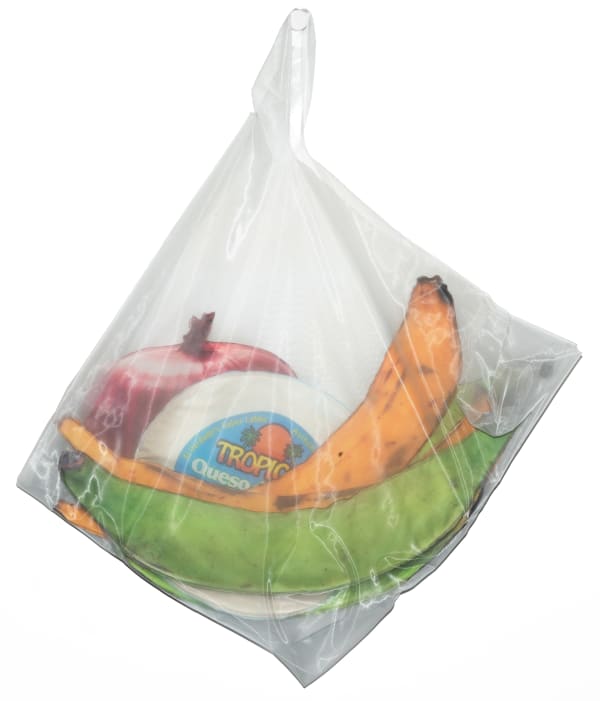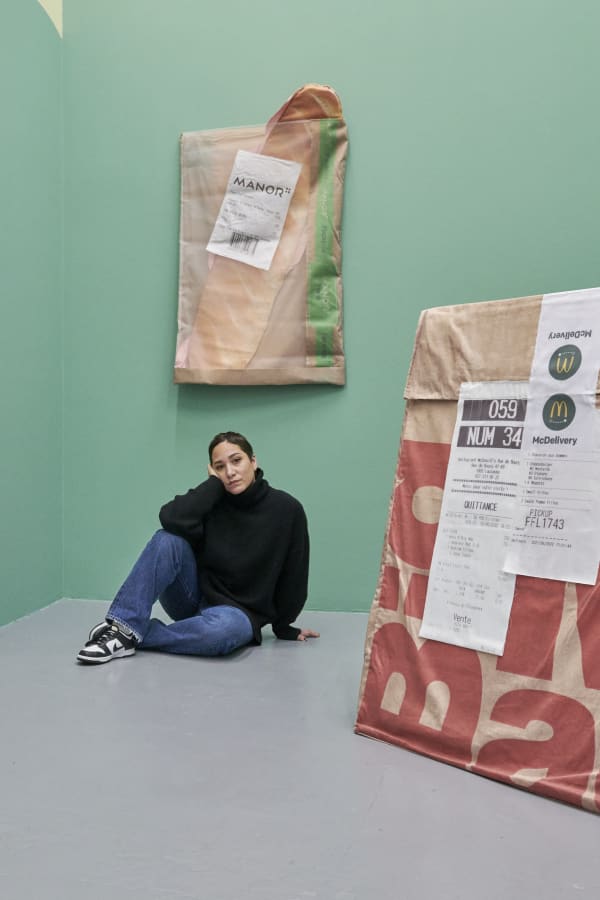Capital M
Fabienne Levy is pleased to announce the first personal exhibition in Switzerland of Lucia Hierro.
Lucia Hierro (b. 1987) is a Dominican American conceptual artist born and raised in New York City, and currently based in the South Bronx. Her works reside in the collections of the Pérez Art Museum Miami, the JP Morgan & Chase Collection and the Progressive Art Collection among others, as well as in the collection of the Guggenheim Museum, New York.
The M means metaphysical: as in, the metaphysical subtleties inherent to a commodity, as outlined in the first chapter of Capital. The socialist understands this M, as does anyone who has ever stood slack-jawed before rows and rows of stuff. Lucia knows this, too- her practice is full of oversized totems of commercial goods one might get from the corner store. In her hands, these impersonal products unfold into multivalent monuments of specific memory, communal kinship, and social signification. Look at « Mama’s Nightstand (Redux) »: here is an entire life— even a way of life— contained in a smattering of things.
The M means Manhattan: Lucia’s home, and the inspiration for so much of her work. The commodities in her sculptures, like a brick of Bustelo or Tropical brand queso, are not just paeans to product. They represent a cultural connective tissue, a shared sensate memory among the people she grew up with. These products are the excuse you take to walk the block to the bodega and say hello to all the neighbors. Manhattan is far behind now, here at Lucia’s first European solo show, and so are its web of meanings and things. What is here is the commercial terrain of Lausanne, defamiliarized and sold back to itself: Manor sandwiches, Uniqlo hauls, floating SALE signs over vegetable stands. Corporate goods, bereft of context. There is, too, a Manhattan of the mind, of white folding tables and domino sets, Chinese takeout and Pincho street carts (« Nagle Avenue at Sundown »); but this Manhattan lives only as the dream of the transatlantic visitor, thinking of the things that make up what she might call “home”.
The M might also mean Marx, who wrote the book on the commodity as metaphysical matrix. There are no people in this exhibition, you might notice. There are delivery bikes and market stalls, but the people have been cancelled, separated from their essence. Perhaps they’ve been transmuted into pure economic value, or they’ve joined the impersonal mesh of products in which they find so much identity: been made, finally, into commodities themselves.
Or the M means McDonald’s, that great floating letter that adorns « Asya’s McDelivery » and lives in the popular consciousness as an icon unto itself. It’s this M that persists in the liminal terrain of an unfamiliar country, as recognizable in Lausanne as it is in Manhattan. This M is eternal and interchangeable, always there but no different than any other company’s uppercase array. It is a shared site of meaning without any cultural specificity, a signifier of supply chains and mass production, a non-place placeholder of a postindustrial society dotted with the same fungal network of chain restaurants and fast fashion retailers. This M might be the only thing that truly connects us, Lucia seems to suggest. It is the total reduction of connectivity, of specificity, indeed of identity, to the shining shape of commerce. It contains all other meanings: metaphysical, political, and the rest.
Text by Justin Kamp














